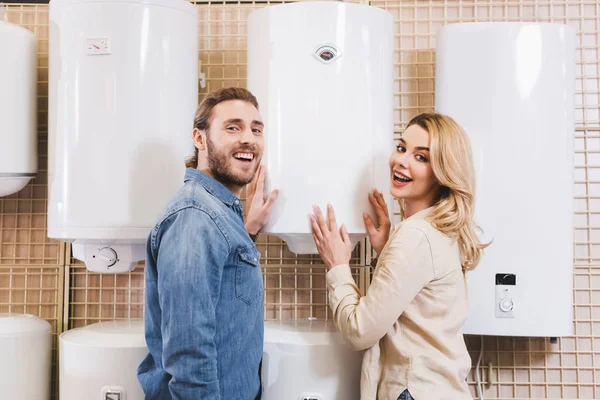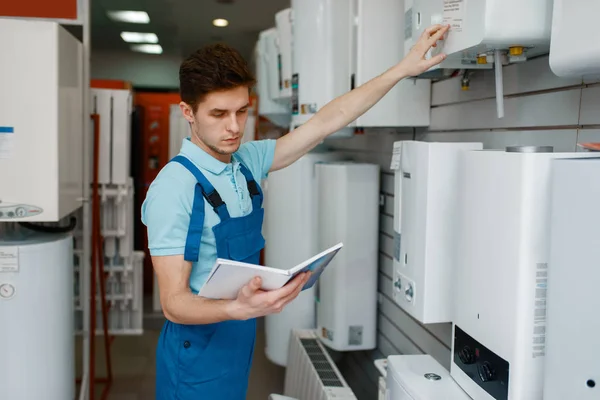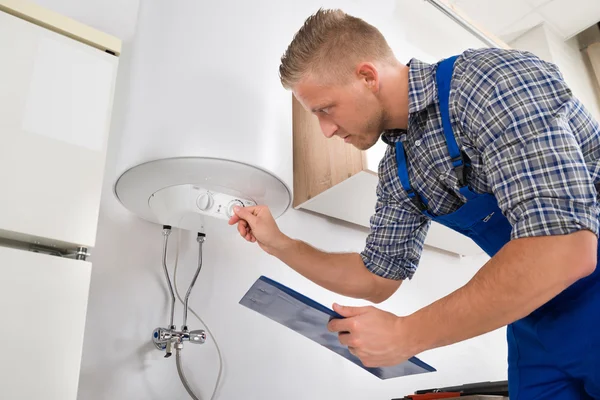Efficiency Matters: How To Save Money When Buying A Boiler
Boilers are an essential part of many households and businesses, providing heat and hot water for various purposes. However, purchasing a boiler can be a significant investment, both in terms of upfront costs and long-term energy usage. In today's world, where energy efficiency and cost savings are increasingly important, choosing the right boiler is crucial. This article will explore the importance of efficiency when buying a boiler and provide practical tips on how to save money in the process.
Understanding Boiler Efficiency
Boiler efficiency refers to how effectively a boiler converts fuel into heat. It is typically expressed as a percentage, with higher percentages indicating better efficiency. The efficiency of a boiler depends on various factors, including its design, size, fuel type, and maintenance.
High-efficiency boilers utilize advanced technologies to maximize heat transfer and minimize heat loss, resulting in lower fuel consumption and reduced energy bills. In contrast, older or less efficient boilers may waste a significant amount of energy, leading to higher operating costs and environmental impact.
Why Efficiency Matters
Investing in an efficient boiler offers several benefits, both financial and environmental.
- Cost Savings: One of the most significant advantages of choosing an efficient boiler is the potential for cost savings. While high-efficiency models may have a higher upfront cost, they typically consume less fuel, leading to lower energy bills over time. Additionally, efficient boilers may qualify for rebates or incentives from government agencies or utility companies, further reducing the overall cost of ownership.
- Reduced Carbon Footprint: By using less fuel to produce heat, efficient boilers help reduce greenhouse gas emissions and combat climate change. Switching to a high-efficiency boiler is an effective way for households and businesses to shrink their carbon footprint and contribute to a more sustainable future.
- Improved Comfort and Reliability: Efficient boilers often provide more consistent heating and hot water, ensuring greater comfort and convenience for occupants. Additionally, modern high-efficiency models are designed to be more reliable and require less frequent maintenance, reducing the likelihood of unexpected breakdowns and repair costs.

Tips for Saving Money When Buying a Boiler
Now that we understand the importance of efficiency, let's explore some practical tips for saving money when purchasing a boiler.
Assess Your Needs
Before buying a boiler, carefully assess your heating and hot water requirements. Consider factors such as the size of your property, the number of occupants, and your typical usage patterns. By understanding your needs, you can choose a boiler that is appropriately sized and tailored to your specific requirements, avoiding unnecessary expenses on oversized or undersized units.
Research Different Types of Boilers
There are several types of boilers available, each with its own advantages and considerations. Common types include condensing boilers, combi boilers, and system boilers. Conduct thorough research to understand the pros and cons of each type and determine which one best suits your needs and budget. Consider factors such as installation requirements, space constraints, and compatibility with existing heating systems.
Look for Energy Star Certification
When shopping for a boiler, prioritize models that have earned the Energy Star certification. Energy Star is a program run by the U.S. Environmental Protection Agency (EPA) that identifies and promotes energy-efficient products. Boilers with the Energy Star label meet strict efficiency standards and are independently certified to deliver energy savings and performance.

Consider Long-Term Costs
While upfront costs are an important consideration, don't overlook the long-term operating costs of a boiler. High-efficiency models may have a higher initial price tag, but they typically offer lower operating costs over their lifespan due to reduced fuel consumption. Calculate the total cost of ownership, including purchase price, installation, maintenance, and energy expenses, to make an informed decision.
Explore Financing Options and Incentives
Many utility companies and government agencies offer incentives, rebates, or financing programs to encourage the adoption of energy-efficient appliances, including boilers. Research available incentives in your area and explore financing options that can help offset the upfront cost of purchasing a high-efficiency boiler. Taking advantage of these programs can make efficiency upgrades more affordable and attractive.
Hire a Qualified Installer
Proper installation is critical to the performance and efficiency of a boiler. Hire a qualified and experienced installer who is familiar with the specific type and model of boiler you choose. A professional installer will ensure that the boiler is installed correctly, optimized for efficiency, and compliant with safety regulations. While it may be tempting to cut costs by hiring an inexperienced contractor, investing in quality installation can prevent costly problems and maximize long-term savings.
When it comes to buying a boiler, efficiency matters. By choosing a high-efficiency model and following these practical tips, you can save money on upfront costs, reduce your energy bills, and lower your environmental impact. Remember to assess your needs, research different types of boilers, prioritize Energy Star certification, consider long-term costs, explore incentives, and hire a qualified installer like tomlinsonenergy.com.au. With careful planning and consideration, you can make a smart investment that provides comfort, reliability, and savings for years to come.

